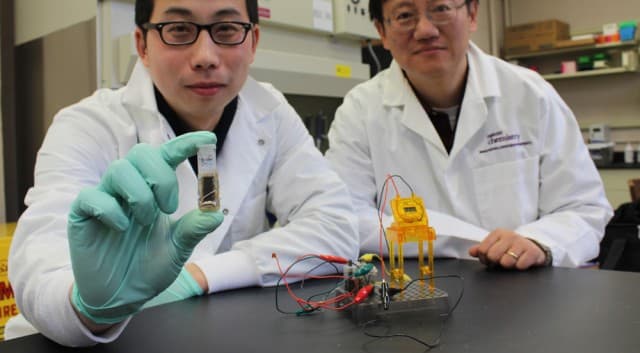Sugar-Feeding 'BioBattery' Stores 15x More Energy Than Li-Ion Battery
Virginia Tech scientists have successfully illustrated a sugar 'biobattery' as a type of enzymatic fuel cell (EFC) that converts the chemical energy contained within sugar substrates (starch and glycogen) into electrical energy. Y H Percival Zhang, Chief Science Officer at Cell-Free BioInnovations (CFB) at Virginia Tech claims that theirs is the first team to have demonstrated the complex oxidation of biobattery's sugar, thus achieving a near-theoretical energy conversion yield that no other person/team has reported. Sugar biobattery contains more potential energy as compared to Lithium battery; the biobattery registers its energy-storage density of 596 ampere-hours (A/h) per kg, which is far greater than 42 A-h/kg energy density registered by Lithium battery employed in several gadgets. With this high an energy density, the biobattery could last approximately ten times longer than the current lithium battery of same size and weight.

Not only is the sugar biobattery more powerful and effective, but cheap to make, and also refillable, eco-friendly and non-flammable.

Not only is the sugar biobattery more powerful and effective, but cheap to make, and also refillable, eco-friendly and non-flammable.
0
